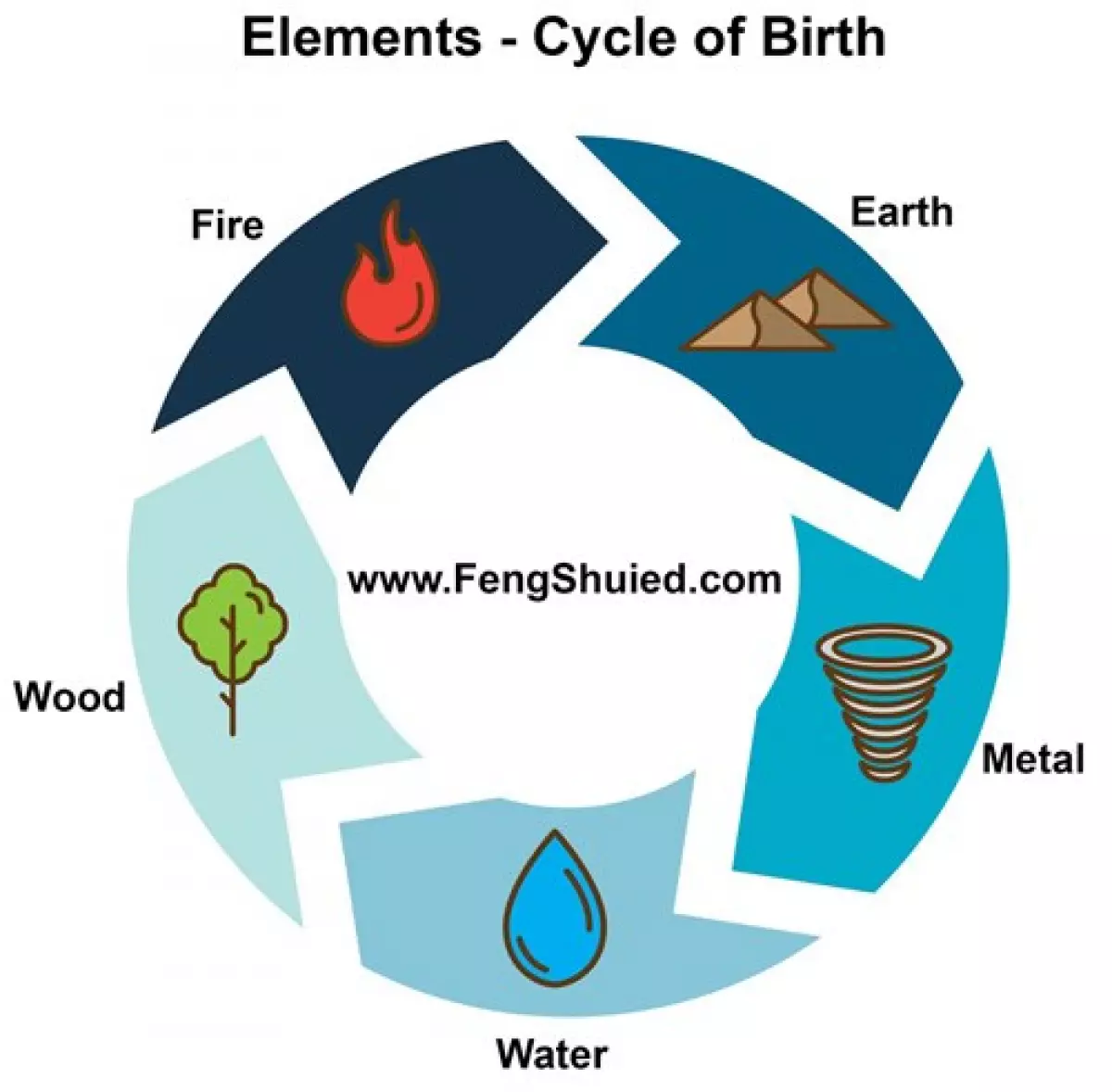The practice of feng shui revolves around the interaction of the 5 elements. These elements play a crucial role in determining the energy of a space, whether it be positive or negative. In this article, we will explore the significance of each element and how they influence our surroundings.
The Power of the 5 Elements
The five elements that make up feng shui are Water, Wood, Fire, Earth, and Metal. Each element possesses its own distinct characteristics and does not surpass the others in power. Their arrangement is not predetermined, allowing them to interact freely with one another.
What Each Element Represents
In feng shui, the chemical properties of the elements are not our primary concern. Instead, we focus on the symbolic representation of each element and how it affects the energy within a space.
Water is associated with the number 1, the north direction, and the winter season. It embodies qualities such as calmness and fluidity. Water is often connected to wealth, money, and the health of the kidneys and ears.
Wood is represented by numbers 3 and 4, as well as the east and southeast directions. It is closely related to the spring season. Wood signifies growth and vitality. In feng shui, it is linked to academic achievements, romance, liver health, and the well-being of the feet and buttocks.
Fire corresponds to the number 9 and the southern direction. It is associated with the summer season. Fire represents passion, energy, and transformation. It is often connected to recognition, status, heart health, and the well-being of the eyes and intestines.
Earth encompasses the numbers 2, 5, and 8. It is present in the southwest, center, and northeast directions. Unlike the other elements, earth is present in all seasons. It symbolizes stability and grounding. Earth is associated with health, wealth, stomach health, and the well-being of the hands, youngest son, and old women.
Metal is represented by numbers 6 and 7, as well as the northwest and west directions. It is linked to the autumn season. Metal embodies strength and clarity. It is associated with friendships, lung health, the youngest daughter, and the well-being of the intestines, head, and mouth.
Understanding the Relationships Between Elements
Within feng shui, there are three main relationships that exist between the 5 elements: the cycle of birth, the cycle of destruction, and the cycle of exhaustion. These relationships provide insights into how different elements interact and influence one another.
The Cycle of Birth
The cycle of birth demonstrates which elements support and enhance one another. This cycle flows as follows: Water nourishes Wood, Wood fuels Fire, Fire produces Earth, Earth creates Metal, and Metal enriches Water. Understanding this cycle allows us to harness the positive energy between elements.
The Cycle of Destruction
In contrast, the cycle of destruction reveals which elements can harm or weaken others. This cycle moves in the following order: Water extinguishes Fire, Fire melts Metal, Metal cuts Wood, Wood penetrates Earth, and Earth absorbs Water. Identifying the elements involved in this cycle can help us address and resolve sources of negative energy.
The Cycle of Exhaustion
The cycle of exhaustion showcases the depletion of energy between elements. Taking the cycle of birth in reverse, the elements weaken one another. For instance, Water nourishes Wood, but in the process, Water's energy is drained. This cycle demonstrates how one element can exhaust another.
The Seasonal Strength of the 5 Elements
Each element also possesses a seasonal strength, indicating their prominence during specific times of the year. Wood thrives in spring, Fire dominates in summer, Metal flourishes in autumn, and Water prevails during winter. Earth, on the other hand, remains steady and influential throughout all seasons.
Understanding the dynamics of the 5 elements and their relationships grants us the ability to create harmonious and balanced spaces. By incorporating feng shui principles into our environments, we can invite positive energy, prosperity, and well-being into our lives.
 Caption: The 5 elements and their interconnectedness in feng shui.
Caption: The 5 elements and their interconnectedness in feng shui.

















